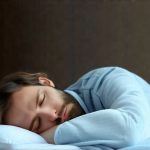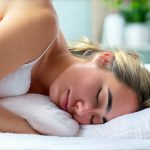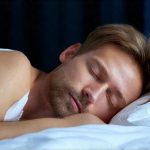Bladder recovery, whether following surgery, childbirth, or dealing with chronic conditions like interstitial cystitis, often involves more than just medical treatments. While therapies and medications are crucial, the foundational role of restorative sleep is frequently underestimated. Many individuals experiencing bladder issues also struggle with disrupted sleep – a vicious cycle where bladder symptoms interfere with rest, and lack of sleep exacerbates those very same symptoms. This article explores how intentionally crafted sleep-focused routines can significantly contribute to bladder recovery by addressing both the physical and psychological aspects of healing, promoting overall well-being and enhancing treatment effectiveness. It’s about recognizing that comprehensive care extends beyond appointments and prescriptions; it encompasses a holistic approach prioritizing rest as an active component of your journey towards better bladder health.
The connection between sleep and bladder function is surprisingly strong. During sleep, our bodies naturally regulate several key processes essential for healing and restoration. Hormone levels shift, inflammation decreases, and the nervous system calms – all beneficial for tissue repair and reducing pain sensitivity associated with bladder conditions. Conversely, when we’re sleep-deprived, stress hormones surge, inflammation increases, and the nervous system stays on high alert, potentially intensifying bladder symptoms like urgency, frequency, and discomfort. Furthermore, poor sleep can negatively impact pelvic floor muscle function, which plays a vital role in bladder control. A well-structured sleep routine isn’t simply about getting more hours of sleep; it’s about optimizing sleep quality to support the body’s natural healing mechanisms and improve overall bladder health management.
The Power of Sleep Hygiene for Bladder Recovery
Sleep hygiene refers to a collection of habits and practices designed to promote consistent, restful sleep. For those recovering from bladder issues, prioritizing sleep hygiene is paramount. It’s about creating an environment conducive to relaxation and minimizing disruptions that can trigger or worsen bladder symptoms. This isn’t a quick fix but rather a long-term strategy for better health. If you’re looking to establish routines that support your overall well-being, consider daily patterns supporting urinary recovery.
A cornerstone of good sleep hygiene involves establishing a regular sleep schedule – going to bed and waking up around the same time each day, even on weekends. This helps regulate your body’s natural circadian rhythm, making it easier to fall asleep and wake feeling refreshed. Beyond scheduling, consider the sleep environment itself. A dark, quiet, and cool bedroom is ideal. Invest in blackout curtains, earplugs, or a white noise machine if necessary. Temperature control is also critical; most people sleep best in slightly cooler rooms. Finally, limit screen time (phones, tablets, computers) for at least an hour before bed, as the blue light emitted from these devices can interfere with melatonin production – a hormone crucial for sleep regulation.
Another often-overlooked aspect of sleep hygiene relates to pre-bedtime routines. These are calming activities that signal to your body it’s time to wind down. This might include taking a warm bath (avoiding harsh soaps that could irritate sensitive skin), reading a book (a physical book, not an e-reader!), listening to soothing music, or practicing gentle stretching. The key is to find what works for you and incorporate it consistently into your evening routine. Avoid stimulating activities like vigorous exercise or intense mental work close to bedtime. Consider journaling about worries or anxieties – getting them out of your head can promote a more peaceful state of mind.
Dietary Adjustments for Better Sleep & Bladder Health
The link between diet and both sleep and bladder health is undeniable. Certain foods and beverages can disrupt sleep patterns or exacerbate bladder symptoms, while others can be incredibly supportive. It’s not about restrictive dieting but rather making informed choices to optimize your overall well-being. Understanding how food impacts your bladder is key, so explore foods that minimize the risk of bladder irritation.
One of the most significant dietary adjustments involves limiting fluid intake in the hours leading up to bedtime. While staying hydrated is crucial during the day, excessive fluids close to sleep can lead to nighttime awakenings and increased urgency. Focus on front-loading hydration – drinking most of your water earlier in the day. Also, be mindful of diuretic beverages like caffeine, alcohol, and carbonated drinks. These can all increase bladder stimulation and disrupt sleep. Experiment with herbal teas known for their calming properties, such as chamomile or lavender, but even these should be consumed in moderation before bed.
Beyond fluid intake, consider the impact of food choices on both sleep quality and bladder function. Foods high in sugar or processed carbohydrates can cause blood sugar spikes and crashes, disrupting sleep. Similarly, spicy foods or acidic fruits (like citrus) may irritate the bladder. Focus on a balanced diet rich in whole grains, lean proteins, and healthy fats. Magnesium-rich foods like spinach and almonds can also promote relaxation and improve sleep quality. Importantly, pay attention to your own body’s sensitivities – what triggers your bladder symptoms? Keeping a food diary can help identify potential problem foods and adjust your diet accordingly.
Establishing a Relaxing Bedtime Ritual
A bedtime ritual isn’t merely about ticking off tasks; it’s about creating a deliberate transition from the busyness of the day to a state of calm readiness for sleep. This signals to both mind and body that it’s time to rest and recover, which directly benefits bladder health through reduced stress and improved nervous system regulation.
- Begin your ritual at least 60 minutes before bedtime.
- Incorporate calming activities like warm (not hot!) bath with Epsom salts, gentle stretching or yoga poses focused on relaxation, reading a physical book (avoiding stimulating genres), or listening to soothing music.
- Practice mindfulness or meditation techniques – even five minutes can make a difference in reducing anxiety and promoting mental clarity. Guided meditations specifically designed for sleep are readily available online.
- Dim the lights during this time to further signal to your body that it’s preparing for sleep, as darkness encourages melatonin production.
Managing Nighttime Bathroom Trips
Frequent nighttime bathroom trips are a common struggle for individuals with bladder issues and can significantly disrupt sleep. While completely eliminating these trips may not be possible, there are strategies to minimize their impact on sleep quality. To further support your nightly routine, consider daily routines that help prevent nighttime urge.
First, avoid drinking any fluids at least two hours before bedtime. Second, consider pelvic floor exercises (Kegels) as part of your daily routine – strengthening these muscles can improve bladder control. Third, when you do wake up to use the bathroom, keep the lights dim and avoid checking the time or engaging in stimulating activities like scrolling through social media. The goal is to return to bed quickly and minimize mental stimulation. Finally, if nighttime awakenings are severely impacting your sleep, discuss this with your healthcare provider – they may recommend strategies tailored to your specific condition.
Seeking Professional Support & Addressing Underlying Issues
While self-care routines are vital, it’s crucial to remember that bladder recovery is often a complex process requiring professional guidance. Don’t hesitate to seek support from healthcare professionals specializing in pelvic health and sleep disorders. Creating calm evenings can also be a significant help – explore creating calm evenings for bladder recovery.
A physical therapist can assess your pelvic floor muscle function and develop a personalized exercise program to improve bladder control. A urologist or gynecologist can diagnose underlying bladder conditions and recommend appropriate medical treatments. If you suspect a sleep disorder like insomnia is contributing to your symptoms, consider consulting with a sleep specialist. Addressing underlying issues – such as anxiety, depression, or chronic pain – is also essential for holistic recovery. These conditions can significantly impact both sleep quality and bladder function. Remember that taking proactive steps towards your health and seeking professional support are signs of strength, not weakness. Prioritizing rest isn’t just about sleep; it’s about a comprehensive approach to well-being, which may involve looking at adaptogens that support lower urinary tract recovery as part of your plan.





















